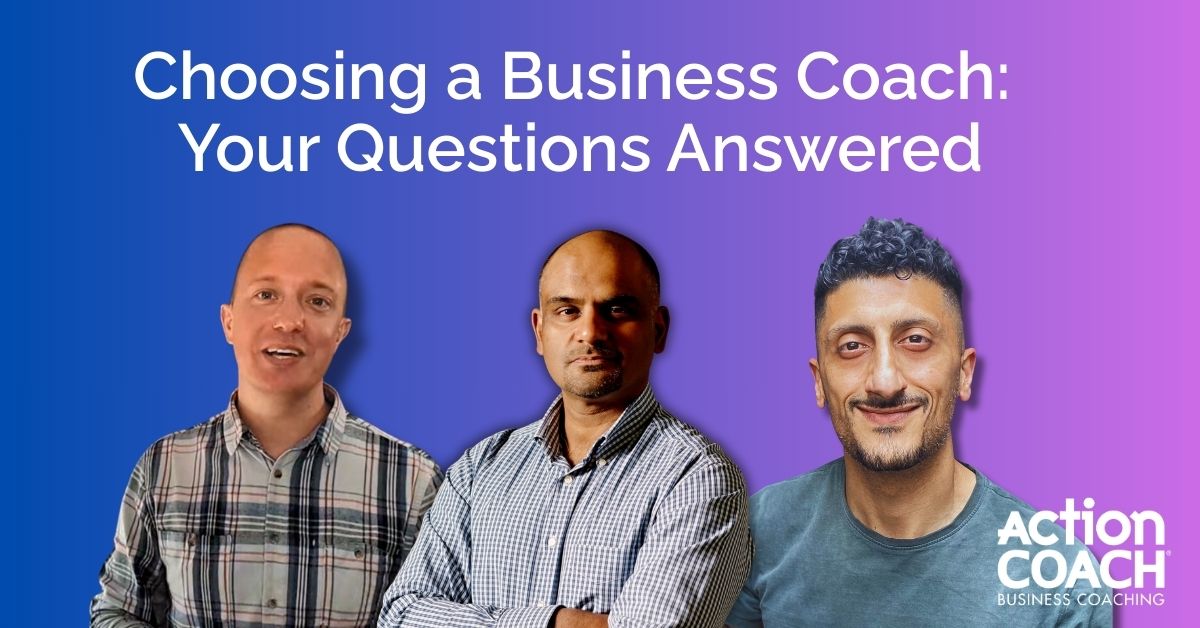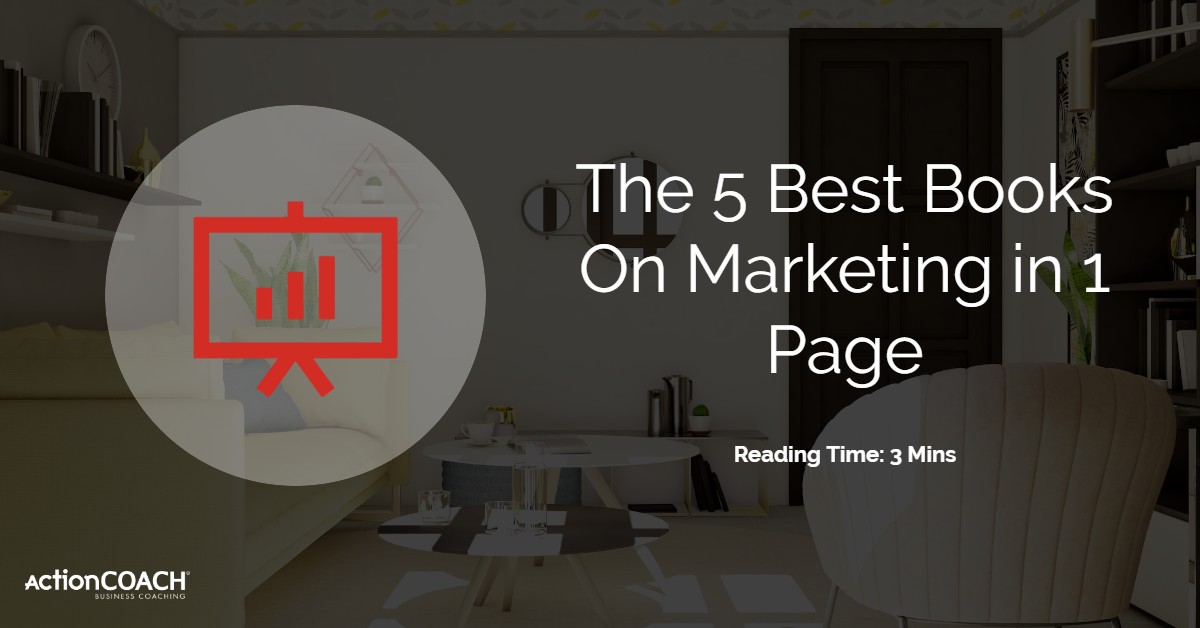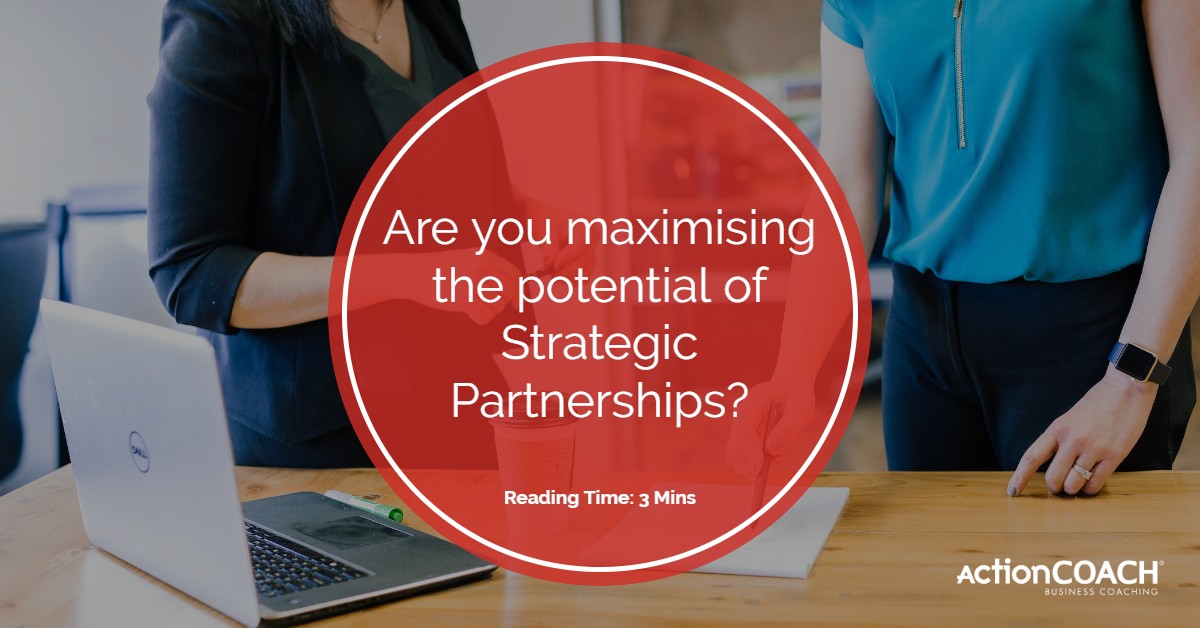Choosing a Business Coach: Your Questions Answered
You’ve decided to look for a suitable business coach. But when a quick Google search throws up thousands of possible coaches, all saying they can transform your business, it’s hard to know how to narrow it down.
What should you look for? What questions should you ask? What red flags should you avoid?
Parag Prasad is the lead coach here at the Business Growth Agency. In this post, we use his expert insights, gained from 16 years as a business coach, to provide the answers you need.
What credentials or qualities should I look for in a Business Coach?
The most crucial thing to look for is proof that the coach has previously achieved the results you want.
Interested in increasing revenue? A coach should be able to present stats and case studies to prove that other clients have achieved that with their help. Want a better work-life balance? Look for testimonials from satisfied clients who have been able to reclaim their time
As Parag explains: “Ultimately, why does anyone hire a coach? It’s not because they’ve got letters after their name or a certain number of years’ experience. Do they know how to get the results that they’re meant to be getting for their clients?”
Because coaching is an unregulated industry (meaning anyone can call themselves a coach), it may feel safer to look for coaches with particular certifications or who are members of a professional body.
However, while both of these can give you some indication that a coach has been trained to a certain standard, neither tells you whether they have the knowledge and expertise to help you achieve your particular goals.
“Just because someone is a qualified professional,” Parag says, “it doesn’t mean they’re the best solution for that client.”
How important is industry experience when choosing a business coach?
While a mentor from your industry provides specialised advice and can introduce you to valuable connections, a coach’s role is very different. They focus on you as an individual.
Parag describes the business coaching journey like this: “It’s everything to do with you as a leader and your ability to run your business: managing time, money and people.”
The best practices for managing those 3 fundamental resources are universal across all businesses, meaning a good business coach can often help you get results without needing to be an expert in your particular field. For this reason, Parag believes industry experience is less important than many people assume. And that’s coming from somebody with decades of coaching experience across a huge range of industries himself.
How important is chemistry or personality fit in the coaching relationship?
The crucial factor here isn’t likability or chemistry but trust.
“The coachee needs to be comfortable being open, honest and vulnerable with their coach,” Parag says. “They need to feel that they can trust them.”
But that trust doesn’t necessarily require you to gel with your coach on a personal level – they don’t need to be someone you’d want to go to the pub with. You can be very different people and still have a productive coaching relationship, providing you feel safe being open.
Of his relationships with his own clients, Parag says: “I’m not here to be their friend. that’s not why I’m their coach. A coach is there to get results.”
What questions should I ask when speaking to a potential business coach for the first time?
Parag recommends asking 3 vital questions when you speak to a potential coach.
The first is to ask them what their track record is in terms of getting results for their clients. As we’ve already established, results are the main thing you should be looking for.
The second is to find out what business coaching services and styles of coaching they offer and which would best suit your needs. For instance, would you benefit more from group sessions or one-to-one?
Lastly, you need to find out what you as a coachee need to do to get the most out of the coaching relationship. To demonstrate why this is so important, Parag provides this example: “For our group coaching programmes, I always reply by saying that you need to be consistent: with your attendance, with your homework execution, with your learning. These behaviours are so important to get the best return from your coaching investment.”
What are some common mistakes people make when choosing a business coach?
The first mistake is choosing based on price alone. While it’s important to find a coach who fits your budget, focusing on finding the most affordable option means you won’t be looking for a coach who suits your individual needs. That could well mean that your investment is wasted.
And good coach is likely to earn you back your investment in 6 months via improved profits and efficiency. A bad coach never will.
For the same reason, Parag believes people make a big mistake by not shopping around. Even if you’re lucky enough to find a coach you’re excited to work with on the first try, you owe it to yourself to investigate multiple options to make sure you’re making an informed choice.
Lastly, Parag cautions against choosing a coach as a knee-jerk reaction to a crisis. As he explains, “people instinctively think they don’t need a coach because they’re doing well.” This means they often leave finding one until things go badly.
Not only does this mean they’re likely to rush into making an unwise choice out of desperation, it also limits what the coach can do. Coaches aren’t in a position to save a business that’s truly in crisis. So, it isn’t always how you choose but when and why you do it.
What are some red flags I should look out for when researching business coaches?
The main thing to look out for is someone making sensational claims about the results you can expect without evidence, processes or systems to support them. As Parag puts it: “If you’re really good at what you do as a coach, that should be backed up by evidence, reviews, testimonials and case studies.”
Look for a coach who makes this evidence easy to find. For instance, you can browse TBGA’s results, testimonials and case studies here on our website or view our 100+ 5* Google reviews.
This review from Rob Whitlock is a great example of the kind of proof you should be looking for: “Through the length of the course Parag covers all aspects of running a business from managing time and finances to marketing, culture and identity. As we progressed through the coaching modules the way these different elements interact and influence one another becomes increasingly clear. Working with Parag has led us to instigate key changes to the way we approach running our business.”
This review isn’t full of vague praise for Parag – it gives you a real sense of the systems and processes TBGA has put in place to support clients. If a coach can’t provide this kind of detailed proof, you may want to think twice.
Another red flag Parag highlights is professionals in other industries offering coaching as an adjunct to their main business. Don’t take it as a given that they are in a position to offer quality coaching simply because they’re skilled in other areas.
How should I establish what the expectations will be from the coaching relationship?
You should do this when you first speak to a potential coach.
“There must be some upfront agreements about exactly what results the client wants,” Parag says. “What are the goals from the relationship? What does that person want? Because then it becomes tangible – it becomes measurable.”
You should also discuss in detail how the coaching will work at a practical level and exactly what form the coach’s support will take. “I call it the shopping list,” Parag says. “For example, our group coaching program has 7 or 8 different ingredients.”
You should also touch on accountability. What level of responsiveness can you expect from them?
Lastly, now’s the time to ask about your role as the client. What do you need to contribute to enable the coach to do their job and to maximise your return on investment?
With all of these expectations set out, it should be much easier for you to gage whether you want to go ahead and, if you do, whether things are progressing as they should.
In Conclusion
Business coaching can be transformational. It can help you achieve improved business performance, greater clarity, and personal growth. But that’s only if you find a coach who is a good fit for you and your goals.
The right coach for you should possess a track record of achieving the kind of results you want, inspire your trust, and be clear about what you can expect and what you need to do. Consider Parag’s advice when investigating possible coaches so you can be as certain as possible that they tick all these boxes.
If you’d like to discover more about the services we offer or want to find out whether our coaching would be a good fit for you, reach out for a free 45-minute coaching call.



